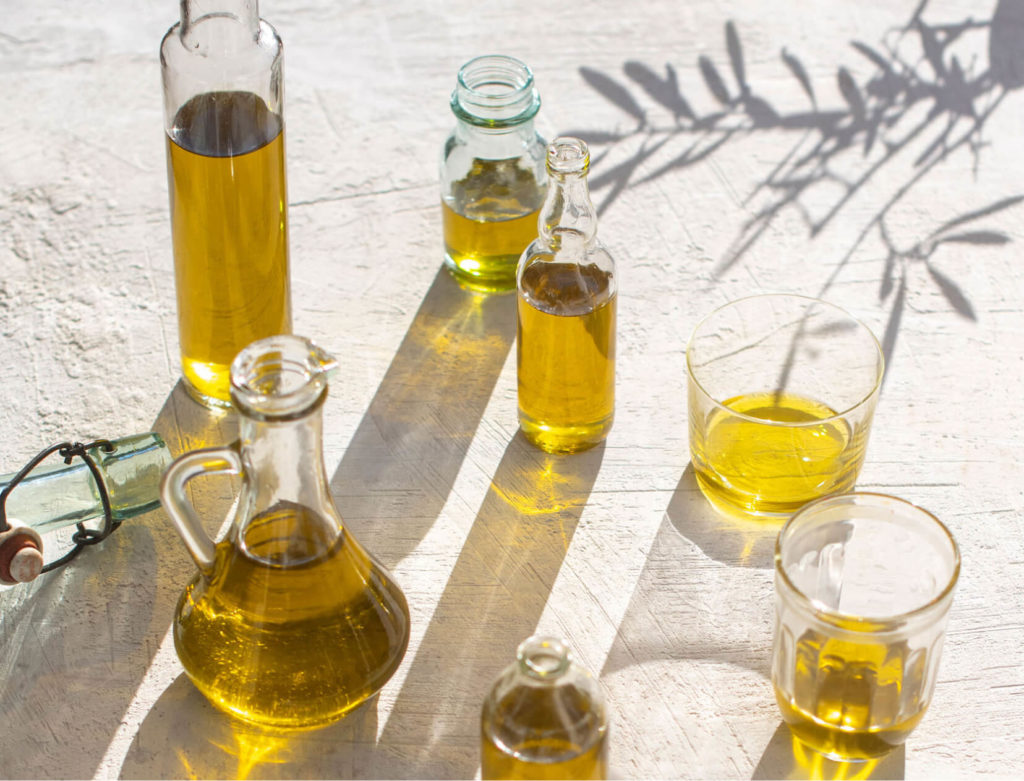Last Updated on June 18, 2025
Seed oils can be bad for your skin, as they can cause inflammation and clogged pores. Using non-comedogenic oils like jojoba or coconut is a better option for skincare.
While seed oils like sunflower, safflower, and canola have benefits, their high polyunsaturated fats can be detrimental to the skin, potentially leading to irritation and acne. The claim that these oils are “toxic” due to their polyunsaturated fats is not entirely unfounded.
It’s important to consider the science and potential drawbacks when using seed oils in skincare. However, there are various viewpoints regarding the effects of seed oils on the skin, and it’s essential to understand both the positive and negative aspects of incorporating them into your skincare routine.
Seed Oils: What Are They And How Are They Used In Skincare?
Seed oils, derived from various plants, are a popular ingredient in skincare products due to their nourishing and moisturizing properties. Understanding the role of seed oils in skincare is essential for making informed choices about the products you use on your skin. From defining seed oils to exploring their common types and benefits in skincare, this article delves into the valuable role these oils play in enhancing skincare routines.
Definition Of Seed Oils
Seed oils, also known as vegetable oils, are extracted from the seeds of various plants. These oils contain essential fatty acids, antioxidants, and vitamins that are beneficial for the skin. Common sources of seed oils include sunflower, grapeseed, jojoba, and argan.
Common Types Of Seed Oils In Skincare Products
Skincare products often feature a range of seed oils, each with its unique benefits. Some of the most commonly used seed oils in skincare include:
- Sunflower Seed Oil
- Grapeseed Oil
- Jojoba Oil
- Argan Oil
Benefits Of Seed Oils In Skincare
Seed oils offer a multitude of benefits for the skin, making them a valuable addition to skincare routines. These benefits include:
- Moisturizing Properties: Seed oils help to lock in moisture and prevent dehydration, keeping the skin supple and hydrated.
- Antioxidant Protection: The antioxidants present in seed oils help protect the skin from free radical damage, reducing signs of aging.
- Anti-Inflammatory Effects: Many seed oils have anti-inflammatory properties, which can soothe and calm irritated skin conditions.
- Regenerative Abilities: Certain seed oils aid in skin regeneration, promoting a healthy and radiant complexion.
When used in skincare products, seed oils can contribute to overall skin health and vitality, making them a beneficial ingredient in your beauty regimen.

Credit: goop.com
Are Seed Oils Bad For Your Skin?
Seed oils have been widely used in various skincare products, touted for their supposed benefits in promoting skin health. However, there is an ongoing debate about whether seed oils are actually beneficial or harmful to the skin. In this article, we will explore the potential harmful effects of seed oils on the skin, examine scientific studies and findings on seed oils and skin health, and assess the impact of seed oils on different skin types.
Potential Harmful Effects Of Seed Oils On Skin
While seed oils are often marketed as natural and nourishing for the skin, some studies have suggested potential harmful effects. Due to their high linoleic acid content, certain seed oils may contribute to skin inflammation and exacerbate acne-prone skin conditions. Additionally, the comedogenic nature of some seed oils may lead to clogged pores and skin irritation, especially for individuals with sensitive or reactive skin.
Scientific Studies And Findings On Seed Oils And Skin Health
Scientific research on the effects of seed oils on skin health has yielded conflicting results. Some studies have indicated that specific seed oils, such as sunflower seed oil, may possess anti-inflammatory and moisturizing properties beneficial for certain skin conditions. However, other studies have raised concerns about the potential oxidative damage caused by the application of certain seed oils on the skin. Further research is needed to conclusively determine the overall impact of seed oils on skin health.
Impact Of Seed Oils On Different Skin Types
The impact of seed oils on skin can vary depending on skin type. While individuals with dry or mature skin may benefit from the emollient and hydrating properties of certain seed oils, those with oily or acne-prone skin may experience adverse effects. Understanding the specific needs of different skin types is crucial in determining the suitability of incorporating seed oils into skincare routines.
Choosing The Right Oils For Your Skin: Alternatives To Seed Oils
When it comes to skincare, the choice of oils plays a crucial role in maintaining healthy and radiant skin. While seed oils are commonly used in beauty products, there is ongoing debate about their impact on the skin. Let’s explore alternatives to seed oils and discover the right oils for your skincare regimen.
Non-comedogenic Oils For Skincare
For individuals prone to acne or clogged pores, opting for non-comedogenic oils can help prevent breakouts and promote clearer skin. Non-comedogenic oils are lightweight and less likely to block pores, making them suitable for various skin types, including oily and sensitive skin. Some popular non-comedogenic oils include:
- Grapeseed oil
- Jojoba oil
- Argan oil
- Sunflower seed oil
Nourishing And Safe Oil Options For Healthy Skin
When seeking nourishment and hydration for the skin, it’s essential to choose oils that are rich in essential fatty acids and offer antioxidant properties. These nourishing oils can support the skin’s barrier function and help protect it from environmental stressors. Some safe and nourishing oil options for healthy skin include:
- Coconut oil
- Avocado oil
- Almond oil
- Rosehip oil
The Role Of Natural Oils In Skincare
Natural oils play a vital role in skincare by providing hydration, restoring the skin’s lipid barrier, and delivering nutrients essential for skin health. Different oils offer unique properties, such as anti-inflammatory and antimicrobial effects, which can benefit various skin concerns. It’s important to consider your skin type and specific skin needs when selecting natural oils for your skincare routine.
Creating A Skincare Routine: Tips For Using Oils Responsibly
Creating a Skincare Routine: Tips for Using Oils Responsibly
Proper Application And Dosage Of Oils On The Skin
When it comes to incorporating seed oils into your skincare routine, it’s important to understand the proper application and dosage to ensure maximum benefits for your skin. Proper application of oils involves determining the right amount to use and the best method of application for your skin type. Using too much oil can lead to excessive greasiness, while using too little may not provide the desired benefits.
Incorporating Seed Oils Into A Balanced Skincare Regimen
Integrating seed oils into a balanced skincare regimen is essential for reaping their full benefits. Incorporating seed oils into your routine alongside other skincare products such as cleansers, toners, and moisturizers can help enhance the overall health and appearance of your skin. It’s crucial to choose oils that complement your existing skincare products and address your specific skin concerns.
Mixing Oils For Maximum Benefits And Skin Health
Mixing oils for maximum benefits and skin health can be a game-changer in your skincare routine. Combining different seed oils can create a potent blend that targets various skin issues such as dryness, inflammation, or signs of aging. Understanding which oils work well together and in what ratios is key to unlocking their full potential for your skin.
Incorporating oils into a skincare routine can be beneficial, but knowing how to use them responsibly is crucial. Proper application and dosage of oils on the skin are essential to avoid potential issues. Introducing seed oils into a balanced skincare regimen alongside other products is important for overall skin health. Mixing different oils can maximize their benefits and address various skin concerns, creating a potent blend for your skincare routine.
Frequently Asked Questions For Are Seed Oils Bad For Your Skin?
Should I Stay Away From Seed Oils?
It’s not necessarily bad to include seed oils in your skincare. They offer benefits that can be good for your skin.
Is Sunflower Seed Oil Bad In Skincare?
Sunflower seed oil is safe for skincare, with numerous benefits as an emollient and skin-conditioner.
Is Olive Oil Healthier Than Seed Oils?
Olive oil is healthier than seed oils. It has more health benefits and is good for cooking.
Are Seed Oils In Shampoo Bad?
Seed oils in shampoo may not necessarily be bad. Some seed oils, like sunflower and safflower, offer skin benefits.
Can Seed Oils Cause Skin Irritation?
Yes, some seed oils may cause skin irritation due to their comedogenic properties.
Are Seed Oils Effective For Dry Skin?
Seed oils like sunflower and jojoba are effective for hydrating and nourishing dry skin.
Conclusion
It’s important to evaluate the use of seed oils in skincare with an evidence-based perspective. While seed oils have benefits for the skin, claiming them to be harmful lacks scientific support. Understanding their role as essential fats is crucial for maintaining overall skin health.
Consider incorporating seed oils mindfully for a balanced skincare routine.


